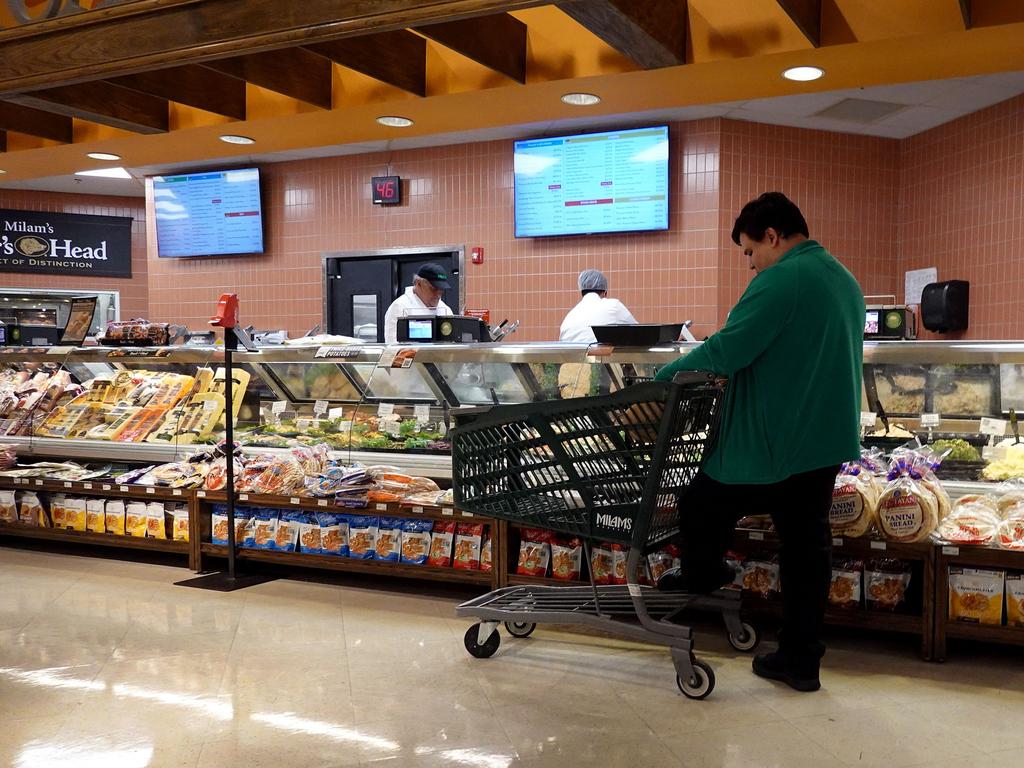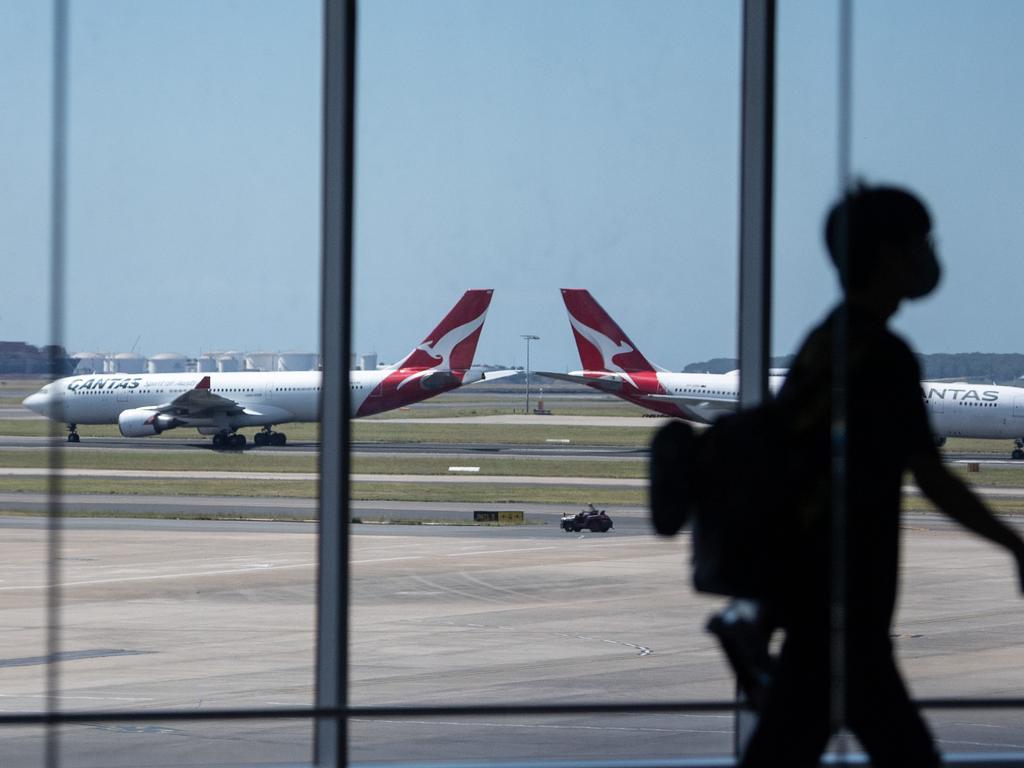Investors brace for bruising reporting season amid downturn
Investors are bracing for what could be the most bruising reporting season since the outset of the Covid-19 pandemic.
Investors are bracing for what could be the most bruising reporting season since the start of the Covid-19 pandemic with equity strategists warning that the only good news will be that economic conditions and profits have not worsened as much as feared.
In an environment characterised by tightening household budgets, weaker consumer spending and rising inflation leading to shrinking profit margins, analysts are increasingly advising clients to shift their money into non-cyclical growth channels detached from the consumer slowdown – led by technology – and equities paying high and stable dividends, including infrastructure, utilities and insurance.
While full-year results for listed investment companies like the $9bn Australian Foundation Investment Co will start to emerge this week, the fiscal 2023 reporting season will be in full swing by the start of August as some of the nation’s largest corporates in mining, telecommunications, technology, financial services, healthcare and retail reveal their numbers.
These results will be backward-looking, and the updates that accompany the profit presentations that will capture more attention from analysts and investors.
UBS equities strategist Richard Schellbach told The Australian he was hoping for a reporting season that would reveal how challenged corporates were, especially those exposed to consumer and discretionary spending. “The reality is the economic picture is deteriorating and some data is indicating it could be deteriorating quite rapidly. Over the last year there’s been a lot of surprise with respect to how resilient both the economy and corporate profitability story has been to the interest rate cycle.

“The work that we have done indicates that the period has been exhausted and that consumers are now genuinely starting to pull back on their intentions toward discretionary categories.
“What we have happening simultaneously is a big repricing of mortgages, as that record amount of fixed rate mortgages is transferred to variable, and so the deceleration over the next six months is what will weigh on the earnings outlook, earnings estimates of all those consumer facing and housing-facing sectors of the equity market.
“And the focus of analysts will be to the extent to which we are seeing demand slide at the moment.”
Unsurprisingly, Mr Schellbach is not optimistic about the looming reporting season and what companies will reveal.
“A good surprise will be that it is not that bad,” he said.
“The only good surprise would be that if a company says ‘our wages bill is up but it is not up 6.5 per cent everyone thought it would be, it is only up 5.5 per cent’.
“I would frame it that way: nobody is looking for any signs that would show an acceleration in activity levels.
“It’s just a matter of to what extent are things decelerating, are they decelerating in an orderly way or are they capitulating – and our view is that it’s somewhere in between.”
UBS is advising clients to invest in companies that are detached from the poorer domestic earnings story.
“So we have been recommending sectors and stocks that are less exposed, or detached, from the consumer slowdown. We really like technology stocks – for the last six months we’ve been very positive on technology stocks.
“We’ve also been very positive on insurance stocks, because they’re both sectors where the growth trajectory is not held hostage by the domestic consumer slowdown – it works on other factors.
“The other aspects that we like (include) companies with secure earning streams that pay dividends, because it’s an environment where we think the equity market as a whole is not going to be able to perform, so therefore a 4 per cent or 5 per cent dividend yield for a stock, I would definitely take that. And the sectors that fit into that story have been infrastructure stocks, utility stocks and insurance stocks.”
UBS’s top picks include WiseTech, CSL, Resmed, Transurban, QBE, Suncorp, AGL and South32.

Morningstar head of equities research Peter Warnes said outlook statements from management would be critical. “Attention will also focus on key domestic economic data including inflation, labour force, and retail sales, as well as monitoring the pulse of household spending,” he said.
“Economic growth slowed from 0.6 per cent in the December quarter 2022 to 0.2 per cent in the March quarter 2023. We expect further weakness in the June quarter and a September-quarter contraction is possible. Against this backdrop, corporate profit growth is likely to slow in the June half, particularly in the sectors reliant on household spending.”
Mr Warnes said Morningstar believed the outlook for fiscal 2024 was for moderating corporate profit growth, and earnings might decline in many cases as household consumption growth stalls.
“It could well contract in the current half to December 2023,” he said. “We expect a subdued market in this quarter, although July is a traditionally stronger month as funds are allocated for the new financial year.”
Mr Warnes said discretionary retail sales growth was slowing as spending patterns reverted to pre-pandemic trends as Australians spent more on services at the expense of goods, with demand for goods facing recession-like consumer sentiment.
“Consumers aren’t cutting expenditure equally across all categories, with spending on essentials picking up. Real household income is under pressure with inflation growing faster than wages,” he said.
But the recent retreat in many retail share prices has thrown up some buying opportunities.
“Nevertheless, the tough outlook means we see some discretionary retailers as oversold, such as Kogan and Harvey Norman. The shift to services benefits gaming businesses, with casino operator SkyCity and gaming machine manufacturer Aristocrat screening as most attractive.”
Other top picks from Morningstar include Bega Cheese, A2 Milk and chicken producer Inghams, whose share price has suffered from inflation.
“We think the market’s concerns about Inghams are overdone,” he said. “Granted, input costs – principally labour and feed – are elevated, and commensurate price increases slow to respond. Margin pressure is exacerbated by an unfavourable product mix, which has been disrupted since the onset of the pandemic. But we expect headwinds to be transitory and forecast profitability improving further from fiscal 2024 as prices increase and mix shift normalises.”
Barrenjoey chief equities strategist Damien Boey said there was no doubt the Australian economy had slowed sharply and that whenever gross domestic income growth (GDP plus net balance of exports) was below 2 per cent there would be corporate earnings downgrades.
“It’s not a great outlook for earnings and we will probably have a few downgrades in this reporting season,” he said.
When it comes to stocks to watch this season, Mr Boey believes some of the well-known healthcare stocks should do reasonably well despite the fall in the value of the Australian dollar.
He also favours industrial supply chain and logistics company Brambles, insurance stocks, infrastructure plays such as Atlas Arteria, Transurban and resources companies Santos, Rio Tinto, Fortescue, Iluka and Northern Star Resources.







To join the conversation, please log in. Don't have an account? Register
Join the conversation, you are commenting as Logout